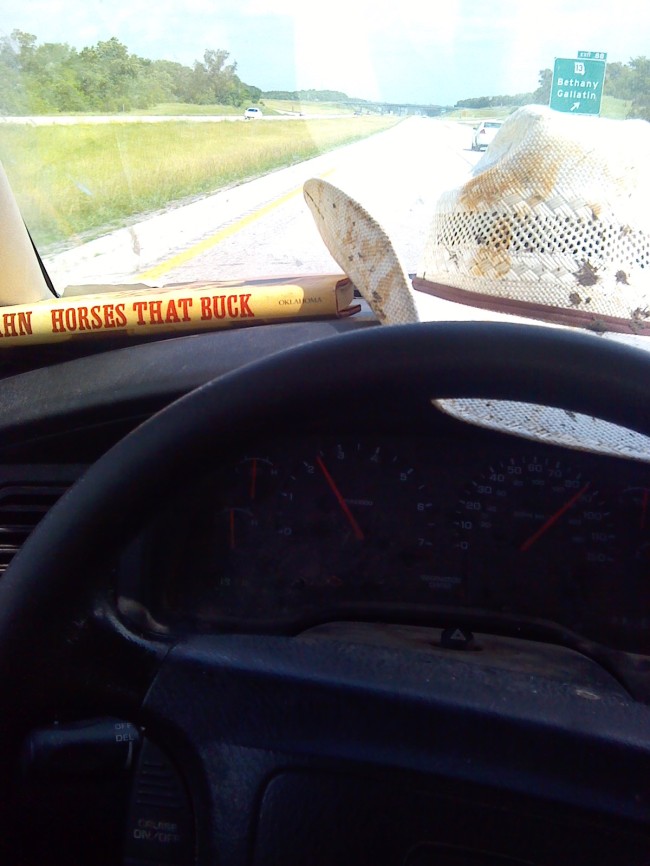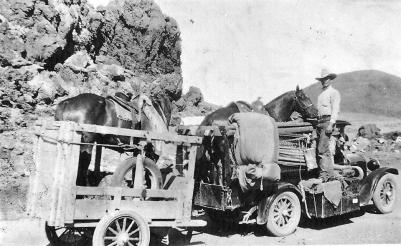He was on the phone pacing in the dorms at Rodeo Bible Camp. I could tell it was a pretty serious conversation he was having on the phone. I grabbed a couple more thing and headed to the door when he hit his knees and started crying. I could barely make out his words through the sobs. Walking over to him, I knelt down and put my hand on his boot. Doctors had just found tumors in his Dad’s bladder and were rushing him into surgery. I felt like I had stepped into the middle of a story that was going terribly wrong.
I had missed the beginning of the rodeo. I had been at a camp the week before and it ended Saturday morning. Tricia and I sped toward the arena and arrived in plenty of time for the bulls. There was a different feeling at the rodeo. I walked towards the trailer of one of the stock contractors and found his wife standing outside talking with another woman. She was telling her about the accident that had happened the night before as they were running calves through. The horse accident resulted in a broken pelvis and a world turned on its head for this family for the next 8 months or so. I walked into a story that had gone terribly bad.
The message came across my phone between clinic times at camp. He fights bulls at the PRCA level and was up north in Minnesota when he texted to chat. I finished up what I was doing and called him back. We chatted for a while about rodeo, travel, and life on the road. Every time I talk to him I get a little jealous of him. But then he told me about how he was struggling with traveling this year. His wife, who had traveled everywhere with him for the last 2 summers, ever since they were married, has developed a back problem. This started a problem with the insurance company, doctors, and others. She just wants to travel with him, he just wants her there, but her back wont let her. As I spoke with him, there was no jealousy present this time, but a feeling that I had stepped into a story gone wrong.
Stories go wrong all the time…its called conflict. Conflict is great for TV ratings and DVD Sales, but horrible in day-to-day life. There is no escaping it however, because everyone of us was born into a story gone terribly wrong.
Genesis starts off the story of God’s interaction with man like this “In the beginning God…” [berisith ‘Elohim]. At the very first, before all else, was God. God the Father, God the Son, and God the Holy Spirit existed as a community, three persons in one being having the same desires and will. God wasn’t dependent on anyone or anything, but the love and community was so perfect, that God decided to create something to share it with. So…”In the beginning God created…” He took to building, creating, molding, forging. Jesus was there as God “spoke” [d-b-r] the Universe into existence (John 1.1-3). The Holy Spirit loves creating and played His active role in creation.
In this process, everything was created. All the matter and energy that ever was came out of God’s creativity in the beginning. At the end of all this process after 5 days of creating, on the 6th day, God makes man and woman to look like Him and to show Him off (Genesis 1.26-28). God had started this whole creation process with Man in mind. With all of the rest of creation God declared it good, but with this new piece of handiwork, God declared it “very good”.
The story of humanity has changed quite a bit since God declared us very good. The “very good” has become very seldom as we deal with cancer, divorce, neglect, abuse, death, sickness, deceit, greed, and toil. “Very good” is not a word we would use to describe the world we live in. The second everyone of us was born, we stepped into a story gone very wrong.
But know that the story began very good. We have a good God who created us to live in his presence forever. We may have walked into a story gone bad, but it wasn’t supposed to be this way.





